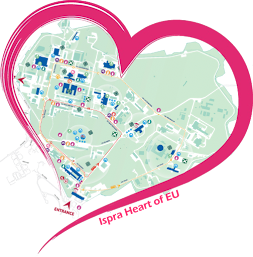Electronic vote at the next LSC elections: we want it. What about you?
You may have learned from a recent broadcast message the negative opinion of the Local Staff Committee regarding the introduction of an electronic voting system for the upcoming elections of the next LSC.
The
outcome was 10 votes against, 8 votes in favour, and 3 abstentions.
As
R&D Ispra, we expressed
our support – and we voted in favour – of the electronic voting system.
You agree with us? Make your voice heard!
You agree with us? Make your voice heard!
The
opinion of the Trade Unions and of the LSC is immaterial. All decisions
regarding the electoral process are decided by you – the staff!
This
power is exercised in the General Assembly that will be held next
Wednesday 25/2 at 11.00: we recommend that you come and support our
proposal (English
extract - French
full version) to introduce the same electronic voting system that is
already in place in Brussels.
Since
many years an electronic voting system is used for the elections of Staff
Committees in Brussels, Luxembourg and EEAS/Delegations, leaving Ispra (and
Seville) as the only large site where traditional paper ballot is still in use.
This system has proven to be reliable and trustworthy, and it is supported by
ALL Trade Unions, including those which - rather oddly - here in Ispra
are against.
Some more background information…
Some more background information…
A note
from the Head of the Human Resources Unit further clarifies the
individual position of each Trade Union on this subject:
- Trade Unions in favour of "easy voting" from your office: R&D Ispra, FFPE Ispra, U4U and Generation 2004
- Trade Unions against "easy voting" from your office: US Ispra/Seville, TAO-AFI Ispra, Save Europe Ispra/Seville, CISL/FIR, SFIE and ISCA Ispra/Seville
We
wish to stress that R&D
Ispra has always been in favour of the electronic vote, and never changed
its mind!
What are the advantages of the electronic vote?
What are the advantages of the electronic vote?
- Each staff member votes from a PC at their workplace – no need to move to the polling station and no more queuing. Each voter is responsible for the confidentiality of his own vote. We fully trust that our colleagues in Ispra and Seville, like those of Brussels, Luxembourg and EEAS, are able to guarantee the correctness of the electoral process.
- With an electronic voting system, no void or null votes can be made involuntarily (such as, for instance, the indication of more than 21 individual preferences, or the vote for a list combined with individual preferences).
- Results would be immediately available at the end of the voting process, with no risk of involuntary mistakes of the scrutiny and need for recounts.
- No more need for the costs of a mission to Seville to seal the ballot box and bring it to Ispra for the scrutiny.
- Participation in the electoral process may increase, thanks to the easier access to the voting system.
Let’s
show we are truly an innovative Research Centre, and that we are ready for a
change - even if we arrive last within the Commission. Dinosaurs
became extinct 65 million years ago... to ensure a modern electoral system come
to the General Assembly on Wednesday 25/2 at 11.00!
Reimbursement of medical expenses in Switzerland
R&D naturally supports the principle that rules should be correctly applied and JSIS must ensure a sound financial management of its communal funds to avoid waste for the benefit of all its members.
At the same time, Art. 19.1 of the Joint Rules on sickness insurance for officials of the European Communities confirms the free choice of practitioners and hospitals and clinics, in order to obtain the most appropriate health care. In some cases, certain diagnoses or treatments may best – or only – be performed in Switzerland for valid medical reasons and we fully support our colleagues who find themselves in this position.
A measure introduced with the intended aim of controlling costs seems to have been applied in a too simplistic way, resulting in an excessive limitation of choice.
We have some concerns about the partial figures provided in the message and the underlying calculation method and data.
For this reason we have sent a request to the Head of Unit "Sickness and accident insurance" asking him to provide full and transparent information regarding this specific issue.
We will keep you posted about any future development.
JRC and Chief Scientific Advisor: an opportunity not to be missed
Source: Science|Business...Bringing the Joint Research Centre, a collective of seven research institutes with a central policy team, more firmly into the Commission’s plans for evidence- based policy is a common plea heard around Brussels. “The JRC is a lost opportunity,” said Schrefler. “You cannot oblige [its] scientists to adapt all their research for policy but they should play a more central role,” she added.
“There should be a stronger link between [a future science adviser] and the JRC,” said Tindemans. “But the chief adviser should not be head of the JRC: the day-to-day responsibilities of managing a large staff would be too distracting.”
Read the full article...
Subscribe to:
Posts
(
Atom
)






No comments :
Post a Comment